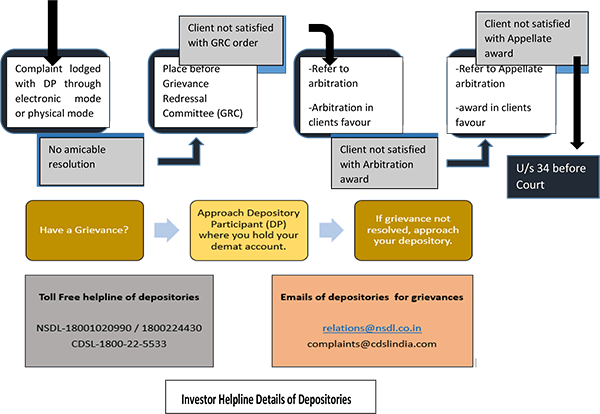Stock markets are known for their volatility, they are influenced significantly by both domestic and international events. Elections, being key occurrences in any nation, shape its economic, social, and political development trajectory.
The Indian stock markets, particularly are highly responsive to election cycles, experiencing heightened volatility during such periods. Before we delve into the intricate relationship between elections and stock markets, it’s imperative to know more about the fundamentals of stock markets and their operations.
How do Stock markets work?
A stock market offers a platform for buyers and sellers to engage in negotiations and transactions facilitated by a stock exchange. Companies seeking to raise funds from the public typically list their shares on the stock exchange through an Initial Public Offering (IPO).
Once these shares are available for trading on the market, investors have the opportunity to buy or sell them amongst themselves. This process enables companies to raise capital while providing investors with the opportunity to participate in ownership and potentially profit from the company’s performance.
Investors base their decision to buy or sell any stock on the analysis of current news and events. Constant evaluation of information helps investors in making informed decisions.
How do elections affect the Stock Market?
Elections have a notable influence on the stock market, primarily due to the uncertainty they bring. The periods before and after the elections are often marked by heightened volatility in stock market activity.
Political occurrences, including elections and alterations in legislation, have considerable influence on stock market dynamics, akin to economic shifts. The prevailing belief suggests that a favourable election outcome for the incumbent administration tends to bolster the stock market, indicating political steadiness, while unfavourable outcomes may have the opposite effect.
Let’s explore the various factors that can help determine the connection between elections and stock markets.
Election manifesto:
Understanding the election manifesto is crucial in understanding the relationship between elections and stock markets. This manifesto serves as a comprehensive outline of the economic, social, and environmental policies proposed by contesting parties, intending to implement them upon winning the election.
Suppose a party’s manifesto includes policies geared towards fostering economic growth, such as tax rate reductions and initiatives focused on economic development. In that case, it can positively impact investor sentiment and consequently influence stock prices.
For instance, the promise of tax cuts and a strong emphasis on economic advancement in a party’s manifesto may lead to an uptick in stock prices if the party secures victory.
Government Ideology:
The Government ideology plays a significant role. If the victorious party demonstrates a robust strategy for economic growth throughout its tenure, it can foster positive market sentiment, leading to an upsurge in share prices. Conversely, if a party with an unclear or conflicting platform seems poised for victory, it can dampen market sentiment, potentially causing a decline in share values.
Economic Policies:
Anticipated economic policies also influence market dynamics. If the leading party is anticipated to implement favourable economic policies to foster the country’s growth and development, it can prompt an upward trend in the share market.
Personality and Popularity of Leader
The personality and popularity of a leader can significantly impact stock market trends. A charismatic and influential leader is likely to attract more foreign investment to the country, generating positive sentiments that contribute to an upward trend in the stock market.
Industries and Sectors’ growth
The period of uncertainty before and after elections not only influences the overall stock market but also has significant implications for various industries. For instance, if the victorious party prioritizes infrastructure development, stocks in the infrastructure and real estate sectors are likely to experience growth.
Conversely, policies outlined in the election manifesto that could negatively impact the pharmaceutical sector may result in a decrease in the stock prices of pharmaceutical companies.
Exit Polls
Exit poll outcomes suggest that a certain party might emerge victorious. These polls, conducted before the official results of the election are declared, serve as a predictive tool to gauge which party stands a better chance of winning.
When a party with favourable economic policies appears to be leading, stock prices tend to rise, reflecting investor confidence. At the same time, if the exit polls favour the current ruling party, it signals political stability, likely resulting in a boost in stock market prices.
Conclusion
The stock market is one of the most unpredictable facets of the contemporary world, yet certain factors offer insights into its behaviour, with elections being one such factor. As elections approach, the stock market tends to exhibit heightened sensitivity.
While the correlation between stock prices and elections is intricate and not entirely predictable, examining elements such as the election manifesto, ideology, policies, and exit poll results can offer valuable clues for anticipating trends in the stock market.




